Filter by

A Discourse on Property John Locke and his Adversaries
John Locke's theory of property is perhaps the most distinctive and the most influential aspect of his political theory. In this book James Tully uses an hermeneutical and analytical approach to offer a revolutionary revision of early modern theories of property, focusing particularly on that of Locke. Setting his analysis within the intellectual context of the seventeenth century, Professor Tu…
- Edition
- -
- ISBN/ISSN
- 9780511558641
- Collation
- -
- Series Title
- -
- Call Number
- -
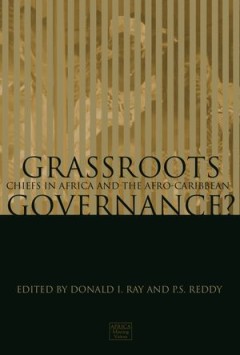
Grassroots Governance? : Chiefs in Africa and the Afro-Caribbean
Traditional leadership is a factor that has long been overlooked in evaluations of rural local government in much of contemporary Sub-Saharan Africa. Grassroots Governance?, an interdisciplinary and intercontinental collection, addresses this gap in African scholarship and brings new perspectives on the integration, or reconciliation, of traditional leadership with democratic systems of local g…
- Edition
- -
- ISBN/ISSN
- 9781552385654
- Collation
- -
- Series Title
- -
- Call Number
- 350 RAY g
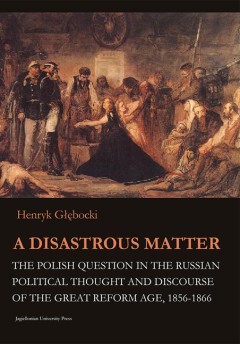
A Disastrous Matter The Polish Question in the Russian Political Thought and…
This book was originally published in Polish as ‘Fatalna sprawa: kwestia polska w rosyjskiej mysli politycznej 1856-1866j’, (Kraków: Arcana, 2000). It sets out to present the Polish-Russian conflict the way the elite of Russian society saw it. One of its chief research topics is the interaction between Russian public opinion, the policy the Empire pursued on its uncompliant subjects, and t…
- Edition
- -
- ISBN/ISSN
- 9788323395256
- Collation
- -
- Series Title
- -
- Call Number
- -

Animal History in the Modern City Exploring Liminality
Assembling an impressive cast of contributors, this volume employs liminality as a lens through which to study the social and cultural history of animals in the modern city. It includes a variety of case studies, such as the horse-human relationship in the towns of New Spain, hunting practices in 17th-century France, the birth of the zoo in Germany and the role of the stray dog in the Victorian…
- Edition
- -
- ISBN/ISSN
- 9781350054059
- Collation
- -
- Series Title
- -
- Call Number
- -
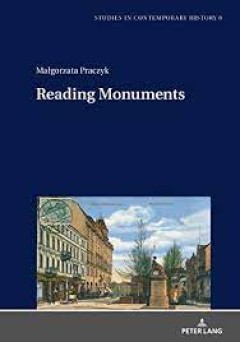
Reading Monuments A Comparative Study of Monuments in Poznań and Strasbourg…
This book tells the story of monuments in two cities that share a parallel and turbulent history: Strasbourg and Poznan. With the Franco-Prussian War begins the well-known story of the destruction and erection of memorials. This book not only explains the mechanisms related to how memorials have functioned in the past, but also contributes to our understanding of current modes of their percepti…
- Edition
- -
- ISBN/ISSN
- 9783653071481
- Collation
- -
- Series Title
- -
- Call Number
- -
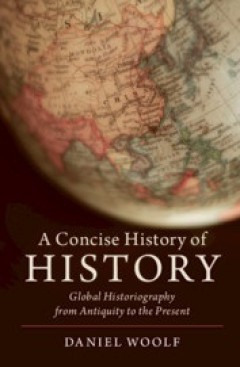
A Concise History of History: Global Historiography from Antiquity to the Pre…
This short history of history is an ideal introduction for those studying or teaching the subject as part of courses on the historian's craft, historical theory and method, and historiography. Spanning the earliest known forms of historical writing in the ancient Near East right through to the present and covering developments in Europe, Asia, Africa and the Americas, it also touches on the lat…
- Edition
- -
- ISBN/ISSN
- 9781108550789
- Collation
- -
- Series Title
- -
- Call Number
- -
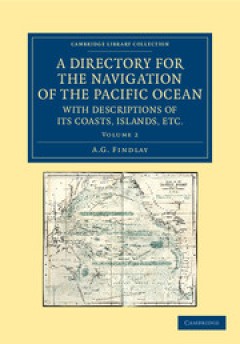
A Directory for the Navigation of the Pacific Ocean, with Descriptions of its…
The English geographer and hydrographer Alexander George Findlay (1812–75) had observed that navigators of his time had to consult a considerable number of documents to gather the information they needed to sail the Pacific Ocean safely. Not only was this highly impractical, it also exposed seafarers to conflicting information that could lead to their demise. First published in 1851, this two…
- Edition
- -
- ISBN/ISSN
- 9781139583114
- Collation
- -
- Series Title
- Cambridge Library Collection - Maritime Exploration
- Call Number
- -

A Diplomat in Japan The Inner History of the Critical Years in the Evolution…
A brilliant linguist, Sir Ernest Satow (1843–1929) was recruited into the British consular service as a student interpreter in 1861. The following year he arrived in Japan, where he witnessed the overthrow of the Tokugawa Shogunate and the Meiji restoration of imperial rule. Drafted in the 1880s while he was consul-general in Bangkok, this 1921 account is based on the voluminous diaries Satow…
- Edition
- -
- ISBN/ISSN
- 9781316144671
- Collation
- -
- Series Title
- Cambridge Library Collection - East and South-East Asian History
- Call Number
- -
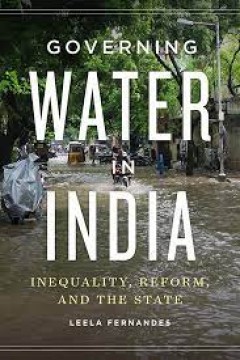
Governing Water in India Inequality, Reform, and the State
Intensifying droughts and competing pressures on water resources foreground water scarcity as an urgent concern of the global climate change crisis. In India, individual, industrial, and agricultural water demands exacerbate inequities of access and expose the failures of state governance to regulate use. State policies and institutions influenced by global models of reform produce and magnify …
- Edition
- -
- ISBN/ISSN
- 9780295750446
- Collation
- -
- Series Title
- -
- Call Number
- -

Encounters and Practices of Petty Trade in Northern Europe, 1820–1960 Forg…
This open access book uncovers one important, yet forgotten, form of itinerant livelihoods, namely petty trade, more specifically how it was practiced in Northern Europe during the period 1820–1960. It investigates how traders and customers interacted in different spaces and approaches ambulatory trade as an arena of encounters by looking at everyday social practices. Petty traders often belo…
- Edition
- -
- ISBN/ISSN
- 9783030980801
- Collation
- -
- Series Title
- -
- Call Number
- -
 Computer Science, Information & General Works
Computer Science, Information & General Works  Philosophy & Psychology
Philosophy & Psychology  Religion
Religion  Social Sciences
Social Sciences  Language
Language  Pure Science
Pure Science  Applied Sciences
Applied Sciences  Art & Recreation
Art & Recreation  Literature
Literature  History & Geography
History & Geography